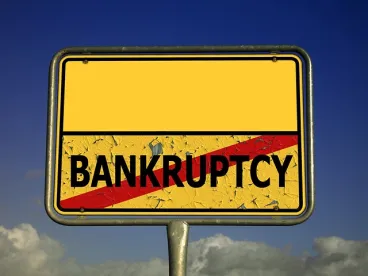The Coronavirus Aid, Relief, and Economic Security (CARES) Act makes important revisions to the United States Bankruptcy Code. The most remarkable change is that it has opened the doors to the Bankruptcy Court for many small businesses.
Small Business Reorganization Act
On February 19, 2020, the Small Business Reorganization Act (SBRA) became effective, which added a new subchapter to the United States Bankruptcy Code. Commonly referred to as Subchapter 5, the SBRA was enacted to reduce the cost and expense for small businesses to reorganize under Chapter 11. To qualify as a debtor under Subchapter 5, the debts of a company must not exceed $2,725,625 (secured and unsecured debts). Section 1113 of the CARES Act increases the debt limit to $7.5. The increased debt limit applies to cases filed after the enactment of the CARES Act and is valid for one year after the CARES Act becomes effective. Thereafter, the debt limit will once again be reduced to $2,725,625.
CARES Act on Bankruptcy Code Subchapter 5
Subchapter 5 creates a streamlined process for a debtor to reorganize and a simpler standard for a debtor to confirm a plan. Under Subchapter 5, a debtor must file a Chapter 11 plan within ninety days of filing for bankruptcy. Costs are reduced based on this timing and as there is no requirement for a debtor to file a Disclosure Statement and no official committee of unsecured creditors. Generally, a plan will be confirmed provided the debtor contributes all disposable income for three to five years to make plan payments. By increasing the debt limit for a debtor to qualify for Subchapter 5, the CARES Act makes a bankruptcy reorganization a viable option for more small businesses.
CARES Act on Chapter 7 and Chapter 13
The CARES Act also provides temporary changes to Chapter 7 and Chapter 13 of the United States Bankruptcy Code. The changes are as follows:
- For purposes of calculating a debtor’s income to determine his or her eligibility for Chapter 7 and Chapter 13, coronavirus-related payments from the federal government are excluded from the analysis.
- Similarly, coronavirus-related payments are not considered in determining a debtor’s disposable income for a Chapter 13 plan of reorganization.
- Lastly, the CARES Act allows Chapter 13 debtors who have already confirmed a plan to modify the plan based on a material financial hardship caused by the pandemic, including extending their payments for seven years after their initial plan payment was due.
The changes apply in pending Chapter 7 and Chapter 13 cases and will be applicable for one year from the effective date of the CARES Act.




 />i
/>i

